Morning booze ban would cost city jobs: wine merchant
Adelaide City Councillor Sandy Wilkinson suggested the ban last week, arguing that some liquor stores were profiting from the struggles of vulnerable people – particularly those who drink in the parklands – by selling alcohol early in the morning.
However, East End Cellars owner Michael Andrewartha says his store has never sold cheap liquor, and that a morning ban would have a “severe impact” on his business.
“At least three staff would lose their positions, and for no reason,” he told InDaily.
